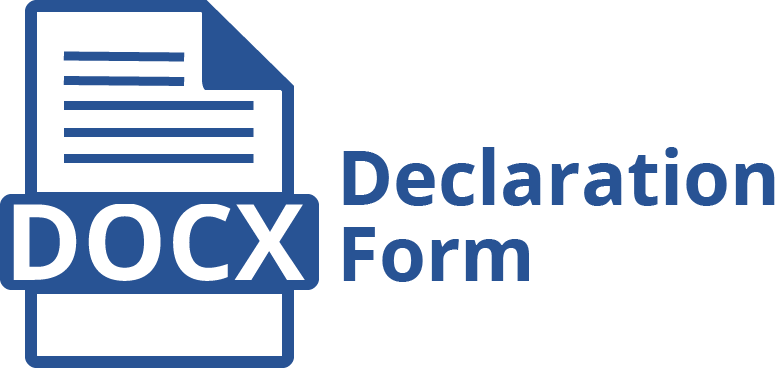“We Are in a Different World”: A Reflection on Science-Policy Interface
Ahmad Maryudi(1*)
(1) Departement of Forest Management, Faculty of Forestry, Universitas Gadjah Mada
(*) Corresponding Author
Abstract
President Joko Widodo, during a foresters’ reunion at the Faculty of Forestry-Universitas Gadjah Mada in December 2017– expressed his concerns about deforestation and forest degradation in Indonesia. Talking about the roles of scientists and academia, he was implicitly asking: “Where have you been?” He clearly expected them to show their contribution through producing “impact science”. This offers chances to channel their expertise and gain greater influence in policy-making processes. In fairness, a remarkable number of research programs, networks and collaboration across scientific disciplines have endeavoured to formulate viable strategies for wise use and responsible management of forests (Maryudi & Sahide 2017), although some (e.g. Kartodiharjo 2013) argue that a fraction of scientists may conduct scientific exploration for the sake of science itself. A paradox, there is.
We may simplistically say “better science, better policy”. Research through systematic procedures is indeed highly desirable to produce more accurate policy advice (Head & Lucia 2015). But question remains how to integrate scientific results into policy decision-making and implementation processes, and what factors may facilitate or debilitate such processes. We have seen “ready-made” scientific results with great potential to contribute to improving the forest conditions under- presented and even overlooked in policy-making processes. A reality check, it is.
In fact, science-based findings and advices are not ulilised, not for reasons of objectivity and truth but because of their conformity and convergence of normative ideas and beliefs of government agencies and policy-makers (Werland 2009). Their decisions are taken in certain directions in the political, social, and economic systems (see Maryudi 2015 for an example), largely by the interest of their powerful and influential constituents (Boecher & Krott 2016). What they expect from science often diverge from scientists’ estimations on what policy-makers consider relevant scientific products (Janse 2008).
Political considerations may prohibit the adoption of ample strategies (Maryudi 2016). We have witnessed countless examples (see Maryudi & Krott 2012; Setiawan et al. 2016; Prabowo et al. 2017; Maryudi 2005). As a result, the political decisions often deal with minor changes and waives any comprehensive problem analysis (Krott 2005). Policymakers may use research findings, not as input in decision making, but as a political tool to justify the decisions made. Given the complex policy-making processes, it is a big ask to expect knowledge acquisition. For scientists, producing evidence is very important, but making them applicable, in accordance with the needs and logic of thinking policy makers is equally important.
There are ways to improve the impact of their research, nonetheless. Thompson et al. (2011) suggest scientists to focus on public priorities in formulating the research areas. Maryudi et al. (2018) say that scientific agenda may need to balance between issue-driven and curiosity-driven science. This would bridge disconnects between scientific focus and policy priorities. They also need to communicate effectively to wider communities. Scientific information should be easily digested by the target groups; this requires a broader set of skills than the commonly used in scientific communities nonetheless (ibid.). This may well go beyond the capacity of the scientific community because they often have less influence on policy levels. To mediate this, Boecher and Krott (2016) highlight the role of intermediaries capable of transferring knowledge and mediating interests. Werland (2009) scientists may need to seek strategic coalitions with non-forestry actors in order to integrate their findings into policy.
Keywords
Full Text:
PDFReferences
Boecher M, Krott M. 2016. Science makes the world go round: Successful scientific knowledge transfer for the environment. Springer International Publishing, Switzerland.
Head BW, Lucia S. 2015. Policy analysis?: Evidence based policy-making, 2nd Edition, International Encyclopedia of Social & Behavioral Sciences. Elsevier.
Janse G. 2008. Communication between forest scientists and forest policy-makers in Europe - A survey on both sides of the science/policy interface. Forest Policy and Economics 10(3):183–194.
Kartodihardjo H. 2013. Memahami politik adopsi hasil penelitian sebagai strategi pengembangan KPH: Studi literatur dan pengalaman empiris. Ekspose Hasil Penelitian di Balai Penelitian Kehutanan Banjarbaru
Krott M. 2005. Forest polecy analysis. Dordrecht, Netherlands: Springer.
Maryudi A. 2005. Beberapa kendala bagi sertifikasi hutan rakyat. Jurnal Hutan Rakyat 7(3):25-36.
Maryudi A. 2015. The political economy of forest land-use, the timber sector, and forest certification. In Romero et al., editor. The context of natural forest management and FSC certification in Indonesia. Center for International Forestry Research, Bogor.
Maryudi A. 2016. Choosing timber legality verification as a policy instrument to combat illegal logging in Indonesia. Forest Policy and Economics 68:99-104.
Maryudi A, Krott M. 2012. Poverty alleviation efforts through community forestry program in Java, Indonesia. Journal of Sustainable Development 5(2):43-53.
Maryudi A, Nurochmad DR, Giessen L. 2018. Research trend: Forest policy and governance-future analysis in multiple social science disciplines. Forest Policy and Economics 91:1-4.
Maryudi A, Sahide MAK. 2017. Research trend: Power analyses in polycentric and multi-level forest governance. Forest Policy and Economics 81:65-68.
Prabowo D, Maryudi A, Senawi, Imron MA. 2017. Conversion of forests into oil palm plantations in West Kalimantan, Indonesia: Insights from actors’? power and its dynamics. Forest Policy and Economics 78:32-39.
Schusser C, Krott M, Movuh MCY, Logmani J, Devkota RR, Maryudi A, Salla M. 2016. Comparing community forestry actors in Cameroon, Indonesia, Namibia, Nepal and Germany. Forest Policy and Economics 68:81-87.
Setiawan EN, Maryudi A, Purwanto RH, Lele G. 2016. Opposing interests in the legalization of non-procedural forest conversion to oil palm in Central Kalimantan, Indonesia. Land Use Policy 58: 472-481.
Thompson ID, Okabe K, Tylianakis JM, Kumar P, Brockerhoff EG, Schellhorn NA, Parrotta JA, Nasi R. 2011. Forest biodiversity and the delivery of ecosystem goods and services: Translating science into policy. BioScience 61(12):972-981.
Werland S. 2009. Global forest governance – Bringing forestry science (back). Forest Policy and Economics 11:446–451.
Article Metrics
Refbacks
- There are currently no refbacks.
Copyright (c) 2018 Jurnal Ilmu Kehutanan
License URL: https://creativecommons.org/licenses/by-nc-sa/4.0/
© Editorial Board Jurnal Ilmu Kehutanan
Faculty of Forestry, Universitas Gadjah Mada
Building D 2nd floor
Jl. Agro No 1, Bulaksumur, Sleman 55281
Phone. +62-274-512102, +62-274-550541, +62-274-6491420
Fax. +62-274-550541 E-mail : jik@ugm.ac.id
former website : jurnal.ugm.ac.id/jikfkt/
new website : jurnal.ugm.ac.id/v3/jik/
Indexed by:
Jurnal Ilmu Kehutanan is under the license of Creative Commons Attribution-ShareAlike 4.0 International








